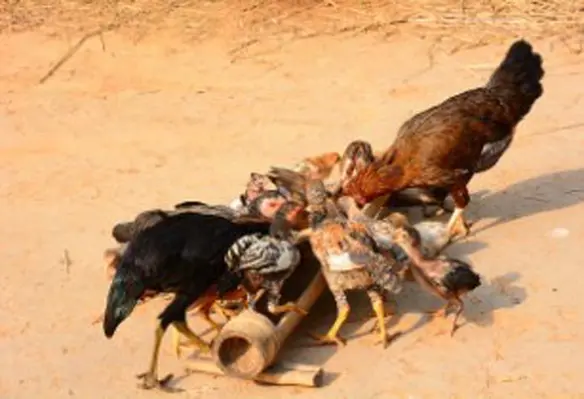The UN FAO has warned that Zoonotic diseases and misuse of antibiotics in animals and humans resulting in antimicrobial resistance (AMR) are converging in Asia-Pacific countries with potential deadly effects
'Superbugs,’ otherwise known as multiple-drug resistant bacteria, are on the rise worldwide, threatening the last lines of defence in treating humans and endangering food production systems because of the indiscriminate use of antimicrobials in livestock, including use of 'last hope' antibiotics such as Colistin in clinics, food and farming.
“We need to take action on AMR now because it affects us all,” said Dr Juan Lubroth, chief veterinarian and coordinator of FAO. He acknowledged that while antimicrobial agents such as antibiotics improved quality of life, wellbeing and welfare, their overuse and misuse in both humans and animals are resulting in the spread of AMR, which is complicating management of many infectious diseases.
The link between animal and human AMR is important. Studies have shown that about all emerging infectious diseases reported during the second half of the 20th century (95 per cent) were zoonotic related.
More than half the world's population is concentrated in Asia where levels of antimicrobial resistance are particularly high and the transboundary threat of AMR is of particular concern. FAO and other organisations are calling for greater surveillance of antimicrobial agents, their residues and the reporting of the detection of resistant bacteria and to reduce imprudent reliance on antimicrobials across sectors to keep existing antibiotics effective by improving good agricultural practices.
“Antibiotics and other antimicrobials are vital to treat sick animals and to protect public health by preventing the spread of disease and by keeping pathogens off our plates,” Lubroth told delegates at the Prince Mahidol Awards Conference (PMAC) in Bangkok, where the theme of this year’s annual conference was AMR and emerging infectious diseases.
Vaccine to help farmers tackle superbugs in Asia
Poor access to quality and affordable vaccines, and expert veterinary advice in many places, is an impediment to reducing antimicrobial use, especially for the rural poor, while antibiotics are relatively cheap and easy to access from market stalls without prescription. Of additional concern, is the quality of what is available outside regulated stores, as substandard or falsified medicines are available to an uninformed buyer. This is true in veterinary medicine as it is for human use.
“Governments have a responsibility to their country and to the global community to step-up and ensure that adequate regulations for antimicrobial use and distribution are in-place and enforced,” said Lubroth, “This responsibility extends to providing incentive programmes and enabling mechanisms to help farmers transition away from an unsustainable dependency on antibiotics.”
FAO is working with countries in the Asia-Pacific region including Bangladesh, Cambodia, Lao PDR, Philippines and Vietnam to develop and implement National Action Plans on AMR to raise awareness, promote good practices and legislation, and boost surveillance, with support from donors like the UK's Fleming Fund and the United States Agency for International Development (USAID).




